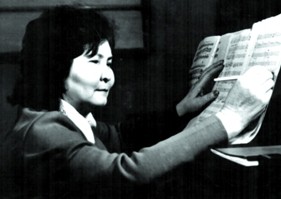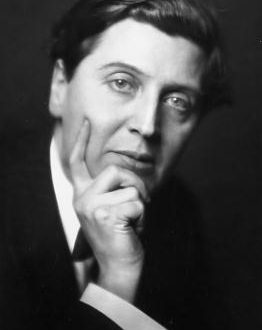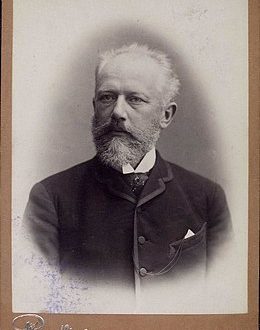
Gaziza Akhmetovna Zhubanova (Gaziza Zhubanova) |
Gaziza Zhubanova

There is a saying: “Philosophy begins with wonder.” And if a person, especially a composer, does not experience surprise, the joy of discovery, he loses a lot in the poetic understanding of the world. G. Zhubanova
G. Zhubanova can rightfully be called the leader of the composer school in Kazakhstan. She also makes a significant contribution to the modern Kazakh musical culture with her scientific, pedagogical and social activities. The foundations of musical education were laid by the father of the future composer, Academician A. Zhubanov, one of the founders of Kazakh Soviet music. The formation of independent musical thinking took place during his student and postgraduate years (the Gnessin College, 1945-49 and the Moscow Conservatory, 1949-57). Intense creative experiences resulted in the Violin Concerto (1958), which opened the first page of the history of this genre in the republic. The composition is significant in that it clearly manifested the concept of all subsequent creativity: a response to the eternal questions of life, the life of the spirit, refracted through the prism of the modern musical language in an organic combination with the artistic rethinking of the traditional musical heritage.
The genre spectrum of Zhubanova’s work is diverse. She created 3 operas, 4 ballets, 3 symphonies, 3 concerts, 6 oratorios, 5 cantatas, over 30 pieces of chamber music, song and choral compositions, music for performances and films. Most of these opuses are characterized by philosophical depth and poetic understanding of the world, which in the mind of the composer is not limited by space and time frames. The artistic thought of the author refers both to the depths of time and to the actual problems of our time. Zhubanova’s contribution to modern Kazakh culture is enormous. She not only uses or continues the national musical tradition of her people that has developed over many centuries, but also significantly influences the formation of its new features, adequate to the ethnic consciousness of the Kazakhs of the late XNUMXth century; consciousness, not closed in its own Space, but included in the universal human world Cosmos.
The poetic world of Zhubanova is the world of Society and the world of Ethos, with its contradictions and values. Such are the generalized epic string quartet (1973); The Second Symphony with its confrontation between two anti-worlds – the beauty of the human “I” and social storms (1983); the piano Trio “In Memory of Yuri Shaporin”, where the images of the Teacher and the artistic “I” are built on a vivid psychological parallelism (1985).
Being a deeply national composer, Zhubanova said her word as a great master in such works as the symphonic poem “Aksak-Kulan” (1954), the operas “Enlik and Kebek” (based on the drama of the same name by M. Auezov, 1975) and “Kurmangazy” (1986 ), symphony “Zhiguer” (“Energy”, in memory of his father, 1973), oratorio “Letter of Tatyana” (on the article and songs of Abai, 1983), cantata “The Tale of Mukhtar Auezov” (1965), ballet “Karagoz” (1987 ) and others. In addition to a fruitful dialogue with traditional culture, the composer presented vivid examples of addressing modern themes with its tragic and unforgettable pages: the chamber-instrumental poem “Tolgau” (1973) is dedicated to the memory of Aliya Moldagulova; the opera Twenty-Eight (Moscow Behind Us) – to the feat of the Panfilovites (1981); the ballets Akkanat (The Legend of the White Bird, 1966) and Hiroshima (1966) express the pain of the tragedy of the Japanese people. The spiritual involvement of our era with its cataclysms and greatness of ideas was reflected in the trilogy about V.I. Lenin – the oratorio “Lenin” (1969) and the cantatas “Aral True Story” (“Letter of Lenin”, 1978), “Lenin with us” (1970) .
Zhubanov successfully combines creative work with active social and pedagogical activities. Being the rector of the Alma-Ata Conservatory (1975-87), she devoted a lot of effort to educating the modern galaxy of talented Kazakh composers, musicologists, and performers. For many years Zhubanova has been a board member of the Soviet Women’s Committee, and in 1988 she was elected a member of the Soviet Mercy Fund.
The breadth of problems that manifests itself in the work of Zhubanova is also reflected in the sphere of her scientific interests: in the publication of articles and essays, in speeches at all-Union and international symposiums in Moscow, Samarkand, Italy, Japan, etc. And yet the main thing for her is the question about the ways of further development of the culture of Kazakhstan. “True tradition lives in development,” these words express both the civic and creative position of Gaziza Zhubanova, a person with an amazingly kind look both in life and in music.
S. Amangildina





